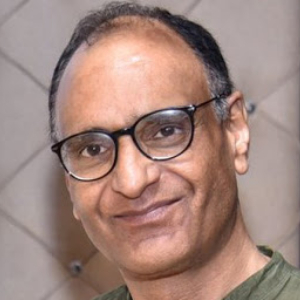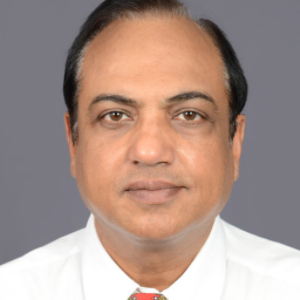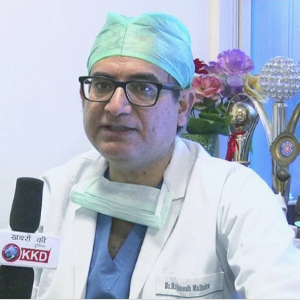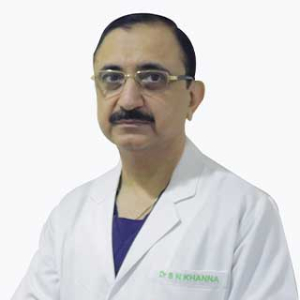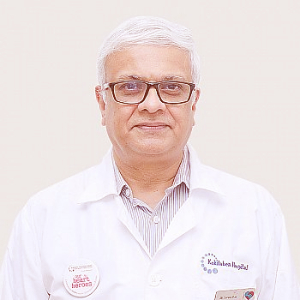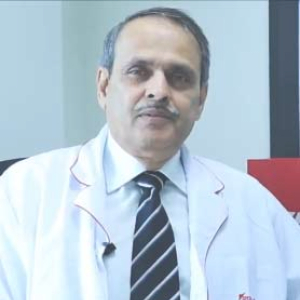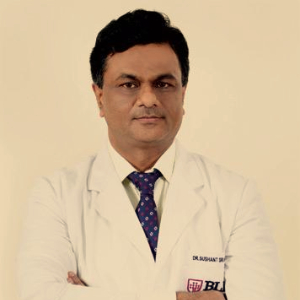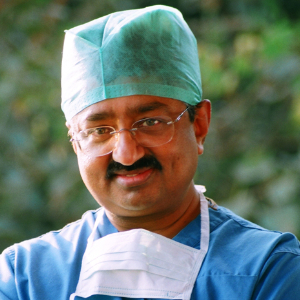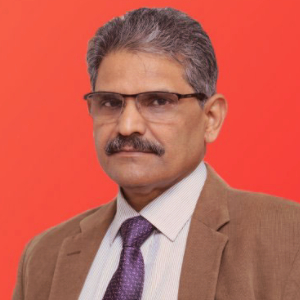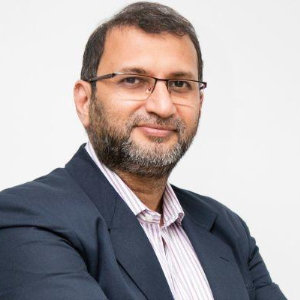Best Doctors in India for Cardiac Ablation
- Cardiac Surgeon, Gurugram, India
- Over 30 years’ experience
Profile Highlights:
- Dr. Murtaza A Chishti is one of the most well-known and distinguished Cardio-Thoracic and Vascular surgeons in North India
- He has more than 3 decades of experience in the field of cardiac surgery with a specialization in heart and lung transplantation surgeries.
- He has performed more than 6000 cardiac procedures that include Total Arterial revascularization, aortic surgery, complex and re-operative coronary surgery, CABG, and several other cardiothoracic surgeries.
- Cardiac Surgeon, Mumbai, India
- Over 36 years’ experience
Profile Highlights:
- Dr. Nandkishore Kapadia is one of the leading Cardiothoracic and vascular surgeons in India excelling in heart and lung transplant surgeries.
- He has 36+ years of experience in the field during which he has performed over 10000 CABGs, 2000 heart valve repairs, and 800 minimally invasive cardiac surgeries.
- He has also performed more than 5000 open heart surgeries, 200 heart and lung transplant surgeries, and 150 VAD and ECMO implantation procedures.
- Cardio Thoracic & Vascular Surgeon, New Delhi, India
- Over 30 years’ experience
Profile Highlights:
- Dr. Rajneesh Malhotra is a distinguished cardiovascular and thoracic surgeon in India with over 30 years of experience.
- He is an expert in all kinds of cardiac surgeries with a special interest in Robotic Cardiac surgery along with minimally invasive cardiac surgery and other traditional heart surgeries.
- Dr. Rajneesh Malhotra has performed several complex and high-risk cases and also specializes in heart transplant surgeries and surgeries for heart failure.
- Cardiac Surgeon, New Delhi, India
- Over 26 years’ experience
Profile Highlights:
- Dr. Surendra Nath Khanna is a leading cardiovascular and thoracic surgeon specializing in minimally invasive cardiac surgeries, heart valve repairs, and heart failure surgeries.
- Dr. Surendra Khanna has 26+ years of experience in cardiac care and has performed more than 17000 surgeries that include beating heart surgery, mitral and aortic valve surgery, and double valve replacement surgery.
- His expertise lies primarily in adult cardiac surgeries and has done some of the most complex cardiac surgeries in India
- Pediatric Cardiac Surgeon, Mumbai, India
- Over 33 years’ experience
Profile Highlights:
- Dr. Suresh Rao is a highly experienced cardiac surgeon specializing in congenital heart diseases and has performed more than 12,000 surgeries for congenital heart diseases and disorders.
- Dr. Rao holds an extensive experience of over 33 years in Pediatric and congenital cardiac surgery and has performed numerous simple and complex heart defect surgeries with successful outcomes.
- Dr. Suresh Rao introduced the Modified Ultrafication procedure after congenital heart surgery in India and has used the procedure in the treatment of a large number of pediatric as well as adult patients.
- Cardiac Surgeon, Mumbai, India
- Over 30 years’ experience
Profile Highlights:
- Dr. Suresh V Joshi is a cardiac surgeon in Mumbai with expertise in undertaking complex surgeries as a result of congenital heart diseases.
- He holds an extensive experience of over 3 decades in cardiac surgery and specializes in Coronary Artery Bypass Grafting (CABG); specifically Beating Heart CABG and Minimally Invasive Cardiac Surgeries.
- He is an expert in all kinds of coronary and interventional cardiac procedures and has performed over 15,000 cardiac surgeries for different kinds of heart defects and disorders.
- Chairperson Heart & Lungs Transplant, New Delhi, India
- Over 20 years’ experience
Profile Highlights:
- Dr. Sushant Srivastava is a renowned cardiovascular and thoracic surgeon specializing in heart transplantation.
- He specializes in performing Beating Heart Bypass surgeries and is credited with performing the procedure on the oldest patient in India (96 years old). He also performed the first awake CABG in North India.
- He has taken up close to 10000 cardiac cases in his career and performed 3000+ cardiac surgeries related to Coronary Artery Bypass Grafting (CABG), redo coronary artery surgery, heart failure surgeries, heart valve surgeries, and various other types of cardiac surgeries.
- Cardiac Surgeon, Bengaluru, India
- Over 30 years’ experience
Profile Highlights:
- Dr. Vivek Jawali is a renowned Cardiothoracic and Vascular Surgeon in India and has performed more than 18,000 cardiothoracic and cardiovascular surgeries.
- He has several firsts to his credit that including the first beating heart bypass surgery in 1992 and the first Minimally Invasive Heart Bypass surgery in 1994 in India.
- He performed the first Awake Cardiac Surgery in 1999 which is done without general anesthesia or ventilator but under continuous high thoracic epidural. He also performed the first awake open heart surgery in the world without general anesthesia or ventilator on a 74-year-old patient for triple bypass with aortic valve replacement.
- Cardiac Surgeon, New Delhi, India
- Over 30 years’ experience
Profile Highlights:
- Dr. Yugal Kishore Mishra is a well-known cardiovascular and thoracic surgeon in Delhi specializing in Minimally Invasive and Robotic cardiac surgeries.
- He has 3 decades of experience in CTVS and has performed more than 19,000 open heart surgeries to date that including various types of minimally invasive cardiac procedures such as the port access approach for valve surgery and ASD closure.
- He is the founder of the Robotic Cardiac Surgery Program at Fortis Escorts Heart Institute where he has performed over 500 robotic cardiac surgeries.
- Cardiac Surgeon, Mumbai, India
- Over 24 years’ experience
Profile Highlights:
- Dr. Zainulabedin Hamdulay is one of the best cardiac surgeons in Mumbai, India, and specializes in devising new and innovative techniques for cardiac surgeries.
- He has 24+ years of experience and has performed over 8000 cardiac surgeries that included complex valve repairs, congenital cardiac surgery, CABG, and several minimally invasive cardiac surgeries.
- With a motive to provide the best, affordable and comprehensive cardiac care to all his patients, he founded the Hamdulay Heart Foundation to provide aid to the economically backward community.
Best Hospitals in India for Cardiac Ablation
Cardiac Ablation
Cardiac Ablation is a procedure that involves the use of energy for making small scars in the tissues of your heart. The energy stops unusual electrical signals that are moving through the heart and causing uneven heartbeat or arrhythmia. The procedure treats atrial fibrillation which is a type of irregular heartbeat. Your doctor will perform Cardiac Ablation if the medications and heartbeat resetting (also called cardioversion) fail to work.
Types of Cardiac Ablation
There are two ways of performing ablation. Catheter ablation is a more common one of the two. The other name for Cardiac Ablation is radiofrequency or pulmonary vein ablation. This isn’t a surgical procedure. Your doctor will put a catheter (a thin, flexible tube) into the blood vessels of your neck or leg to guide it to the heart. When the tube reaches the area causing arrhythmia, it will destroy the cells responsible for the same. This makes your heartbeats regular.
- Radiofrequency ablation– The doctor will send radiofrequency energy with the help of catheters to make circular scars around the veins or each group of veins.
- Cryoablation- The doctor will use a single catheter to send a balloon that has material tipped for freezing the tissues and cause a scar.
Types of cardiac surgical ablation : Surgical ablation will involve cutting your chest to gain access.
- Maze procedure- Your doctor will perform this while you are undergoing open-heart surgery for bypass or valve replacement. He or she will make small cuts in the upper portion of your heart while stitching them together to form a scar that stops unusual signals.
- Mini maze- In most cases, people with atrial fibrillation don’t require n heart surgery. Here the need for this procedure arises. Your doctor will make multiple cuts between the ribs while using a camera to perform catheter ablation.
- Convergent procedure- It involves catheter ablation with a mini-maze procedure.
Why it's done?
The procedure helps to correct the problems with heart rhythm. The electrical impulses causing the contraction of your heartbeats must follow a specific pathway through the heart. Arrhythmia or abnormal heartbeat happens due to an interruption in these impulses that are treatable with Cardiac Ablation. Cardiac Ablation is the right option for those who:
- Tried medications for arrhythmia but didn’t get any results
- Had serious side effects because of medications that treat arrhythmia
- Are at a high risk of complications due to arrhythmia
Benefits
Preparation
What to expect?
During the procedure
Your doctor will perform the procedure in the hospital. The nurse will place an IV line in your forearms before beginning the procedure and give you a sedative so that you relax. Your doctor might use general anesthesia instead to make you fall asleep. Your doctor will numb the area near your neck, groin, or forearm after the effects of the sedative set in. The team will then insert a needle into your vein while placing a sheath through this needle.
This is followed by threading the catheters through your sheath and guiding them to various places in your heart. Next, they will inject a dye into the catheter that allows your doctors to see the blood vessels and heart using x-ray imaging. Electrodes are present at the tip of the catheters that help to send electrical impulses to your heart and record the electrical activities of your heart. This process involving tests and imaging for determining the cause of arrhythmia is known as electrophysiology study (EP study). The doctors perform this before Cardiac Ablation to check the most effective way of treating arrhythmia.
Upon identifying the abnormal heart tissue responsible for causing heart arrhythmia, your doctor will direct the catheter tips towards the abnormal tissue of your heart. The catheter tips will allow the energy to create scars and destroy the tissue causing the arrhythmia. Ablation might block electrical signals traveling through the heart so that the abnormal rhythm stops while allowing signals to travel in a normal pathway. The procedure takes around 4 to 5 hours but it may take longer if the procedure is complex.
After the procedure
The nurse will move you to a recovery area so that you can rest quietly for 5 to 6 hours and there is no bleeding at the catheter site. The team will monitor your heartbeat and blood pressure to check if there are any complications. You can go back home on the same day as the procedure if you are in a good condition. However, you may need to stay overnight if your case is complex. Although you may experience soreness, it will hardly last a week. You will also be able to perform routine activities after some days of the procedure.
Results
Risks
The risks associate with Cardiac Ablation are:
- Bleeding on the site of insertion of a catheter
- Infection
- Arrhythmia due to damage to the electrical system of your heart
- Damage to your heart
- Narrowing of the veins present between the heart and the lungs
- Radiation
- Damaged heart valves
- Damage to the blood vessels due to scraping
- Radiation
- Heart attack
- Blood clots in your lungs or legs
- Kidney damage because of the dye
- Stroke
- Death

